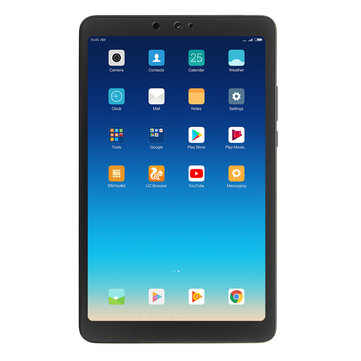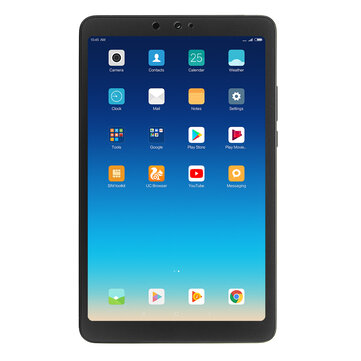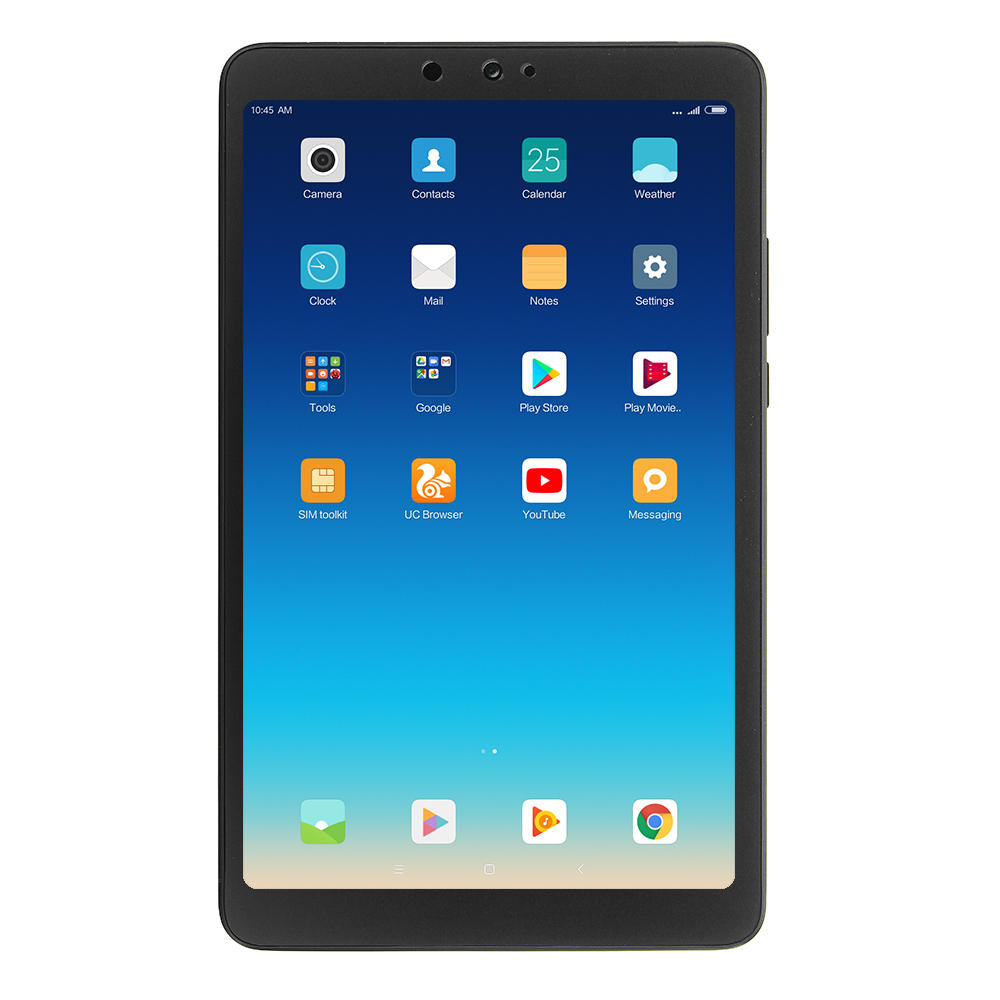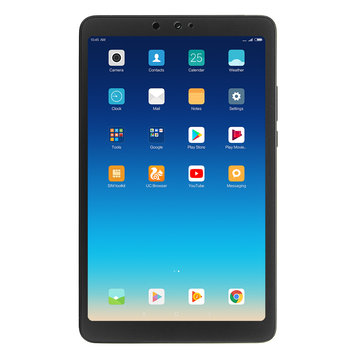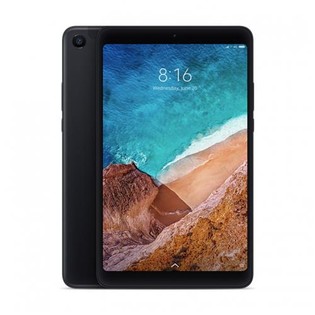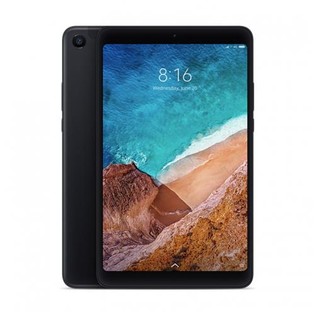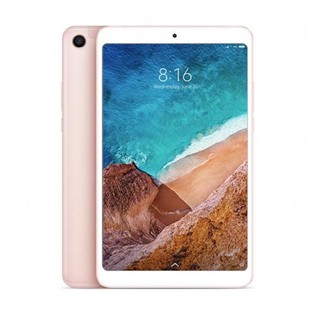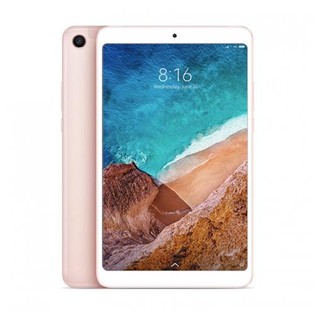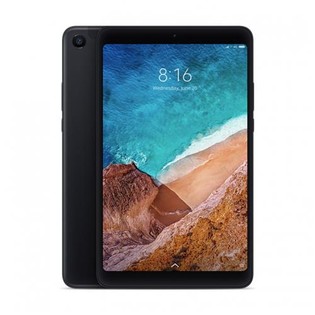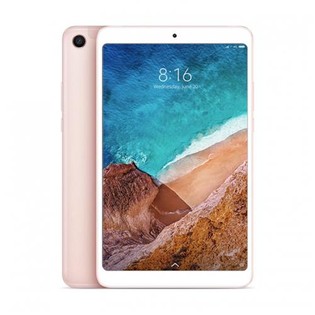- Home
- Scheda Tecnica
- Tablet
- Xiaomi Mi Pad 4
Xiaomi Mi Pad 4
- CPU: Qualcomm Snapdragon 660
- RAM: 3/4 GB
- Storage: 32/64 GB
- Display: 8" Full HD
- Camera: 13 mega-pixel
- OS: Android 8.1 Oreo
Info
Xiaomi Mi Pad 4 si presenta con un design leggermente rinnovato rispetto al suo predecessore e con tante novità sotto la scocca. Il tablet è realizzato con una cover in alluminio con cornici più ottimizzate ed un rapporto in 16:10, il quale contribuisce a snellire l'aspetto del terminale.
Il display è un pannello da 8 pollici di diagonale con risoluzione Full HD. Sotto la scocca, come annunciato già dalla stessa Xiaomi, abbiamo un chipset Snapdragon 660, coadiuvato da 3/4 GB di RAM e 32/64 GB di ROM. La versione con connettività LTE arriva in un'unica configurazione da 4/64 GB.
Ad alimentare il dispositivo ci pensa una capiente batteria da 6000 mAh, mentre il comparto multimediale offrirà una single camera principale da 13 mega-pixel ed una selfie camera da 5 mega-pixel che non disdegna le solite funzionalità AI.
Specifiche
Generali
| Modello | Mi Pad 4 |
| Annunciato | 25 Giugno 2018 |
| Status | Disponibile |
Design
| Dimensioni | 200.2 x 120.3 x 7.9 mm |
| Peso | 342.5 grammi |
| Materiali | Metallo |
| Colori | Nero, Oro |
Display
| Tipo Display Technology => A number of display technologies and types used in mobile phones => TFT (Thin Film Transistor), IPS (In-Place Switching), OLED (Organic Light Emitting Diode), AMOLED (Active-Matrix Organic Light-Emitting Diode), Super AMOLED (an even advanced version of AMOLED), Resistive Touchscreen (Resistive touchscreens contain two layer of conductive material with a very small gap between them which acts as a resistance), Capacitive Touchsceen (Capacitive touchscreen technology consists of a layer of glass coated with a transparent conductor) | IPS |
| Dimensione | 8 pollici |
| Risoluzione | 1920 x 1200 pixel |
| Densità Pixel Pixel Density (PPI) is refers to the concentration of pixels on a particular display, measured in pixels per inch (ppi). Pixel density is calculated by dividing the diagonal pixel resolution of a display by its diagonal size, higher pixel density better display quality. | 283 PPI |
Hardware
| Produttore Chipset Chipset is a group of integrated circuits designed to perform one or a more dedicated functions, often with real time computing constraints, Popular smartphones are equipped with more advanced embedded chipsets that can do many different tasks depending on their programming. | Qualcomm |
| CPU CPU (Central Processing Unit) mostly known as processors, CPU processes instructions in order to carry out certain functions that make your device operate properly. Processors are often described as the brain of computers, smartphones and tablets, Smartphones and tablets rely on processors to carry out their every task, Processors are an incredibly important factor in selecting any type of computing device, including your smartphone. | Snapdragon 660 |
| Frequenza di clock | octa-core fino a 2.2 GHz |
| Architettura | Kryo 260 |
| GPU GPU (Graphics Processing Unit) is a single-chip processor designed to rapidly manipulate and alter memory to accelerate the creation of images in a frame buffer intended for output to a display, This includes things such as lighting effects, object transformations, and 3D motion. | Adreno 512 647 MHz |
| RAM RAM (Random Access Memory) is a type of computer memory that can be accessed randomly, any byte of memory can be accessed without touching the preceding bytes that allows information to be stored and accessed quickly from random locations. RAM is the most common type of memory found in computer systems, smartphones, tablets and other electronic devices. | 3/4 GB LPDDR4x dual Channel |
| Memoria interna Internal Storage is a data storage space (flash memory) mostly used in smartphones, tablets and other electronic devices where operating system, apps, music, photos, videos, files and other user data Is stored. | 32/64 GB eMMC 5.1 |
| Card Slot Memory Card Slot is a special slot for inserting a memory card. Memory cards allow you to expand the phone's built-in memory, A memory card (sometimes called a flash memory card or a storage card) is a small storage medium used to store data such as text, pictures, audio, and video, for use on small, portable or remote computing devices such as mobile phones, mp3 players, digital cameras. | Si |
| Lettore Impronte | |
| Sensori Sensors are electronic components that detects and responds to some type of input from the physical environment. The specific input could be light, heat, motion, moisture, pressure and location, The output is generally a signal that is converted to use in computing systems, a location sensor, such as a GPS receiver is able to detect current location of your electronic device. | Luminosità, accelerometro, giroscopio, bussola |
Software
| Sistema Operativo OS => Every computer system run on a base software called Operating System (OS). Operating System controls all basic operations of the computer (such as smartphone, PDAs, tablet computers and other handheld devices). The Operating System allows the user to install and run third party applications (apps), apps are used to add new functionality to the device. | Android 8.1 Oreo |
| Interfaccia Utente UI or user interface of a device is the look and feel of the on-screen menu system. How it works, its color scheme, how it responds to button presses, all of these things are part of the user interface. | MIUI 9.6 |
Camera
| Posteriore Camera is able to capture photographs and usually videos, The most important characteristics of a camera are the resolution (measured in megapixels), lens focus type (fixed or automatic), higher megapixel cameras are known to capture higher quality photos, but not always a good measurement of the photos quality. | 13 mega-pixel |
| Flash Posteriore Flash Light => There is commonly two types of flash lights are used in camera mobile phones, LED Flash (LED flash offers lower power consumption with drive circuitry that takes up very little room, LEDs can be strobed faster than any other light source), Xenon Flash (xenon flash produces an extremely intense full-spectrum white light for a very short duration) | Nessuno |
| Autofocus | Sì |
| OIS | |
| Video | 1080p a 30fps, 720p a 30fps |
| Sensore | apertura f/2.0 |
| Frontale | 5 mega-pixel |
| Flash Frontale Flash Light => There is commonly two types of flash lights are used in camera mobile phones, LED Flash (LED flash offers lower power consumption with drive circuitry that takes up very little room, LEDs can be strobed faster than any other light source), Xenon Flash (xenon flash produces an extremely intense full-spectrum white light for a very short duration) |
Audio
| Speaker | Stereo |
Connettività
| Bluetooth Bluetooth is a wireless communications technology for exchanging data between mobile phones, headsets, computers and other network devices over short distances without wires, Bluetooth technology was primarily designed to support simple wireless networking of personal consumer devices. | 5.0 |
| Wi-Fi Wi-Fi is a popular wireless networking technology using radio waves to provide high-speed network connections that allows devices to communicate without cords or cables, Wi-Fi is increasingly becoming the preferred mode of internet connectivity all over the world. | 802.11a/b/g/n/ac |
| USB | Type-C 2.0 |
| GPS | GPS /AGPS/GLONASS Beidou |
| Radio FM | |
| NFC NFC (Near field communication) is a set of standards for smartphones and similar devices to establish peer-to-peer radio communications with each other by touching them together or bringing them into proximity, usually no more than a few inches. | |
| HotKnot | |
| Infrarossi Infrared connectivity is an old wireless technology used to connect two electronic devices. It uses a beam of infrared light to transmit information and so requires direct line of sight and operates only at close range. | |
| DLNA | |
| Uscita Video HDMI (High-Definition Multimedia Interface) is a compact audio/video interface for transferring uncompressed video data and compressed or uncompressed digital audio data from a HDMI-compliant source device to a compatible computer monitor, video projector, digital television, or digital audio device. |
Network
| SIM 1 SIM (Subscriber Identity Module) is a small card that contains mobile network subscriber's account information. This allows the phone using the card to attach to a mobile network. The SIM card is most commonly associated with GSM and UMTS mobile networks. Moving a SIM card from one phone to another allows a subscriber to switch mobile phones without having to contact their mobile network carrier. SIM cards can also be used by a phone to store limited amounts of data, such as phone numbers and text messages. | Nano SIM |
| SIM 2 SIM (Subscriber Identity Module) is a small card that contains mobile network subscriber's account information. This allows the phone using the card to attach to a mobile network. The SIM card is most commonly associated with GSM and UMTS mobile networks. Moving a SIM card from one phone to another allows a subscriber to switch mobile phones without having to contact their mobile network carrier. SIM cards can also be used by a phone to store limited amounts of data, such as phone numbers and text messages. | No |
| 4G Network | LTE-TDD: B34/B38/39/40/41 FDD LTE : Bl / 3/5/7/8 |
Batteria
| Batteria Tipo Battery Type => Cell phones run on various kinds of batteries depending on the manufacturer, phone size or shape and features. There are basically four types of cell phone batteries => Lithium Polymer, Lithium Ion, Nickel Metal Hydride and Nickel Cadmium. | Li-Poly (Lithium Polymer) |
| Capacità Battery Capacity is a measure (typically in Amp-hr) of the charge stored by the battery, and is determined by the mass of active material contained in the battery. The battery capacity represents the maximum amount of energy that can be extracted from the battery under certain conditions. | 6000 mAh |
| Removibile | |
| Velocità di ricarica | 5V/2A |
| Wireless Charging Wireless Charging (Inductive Charging) uses an electromagnetic field to transfer energy between two objects. This is usually done with a charging station. Energy is sent through an inductive coupling to an electrical device, which can then use that energy to charge batteries or run the device. |
Offerte
GearBest
Banggood
GeekBuying
Xiaomi Mi Pad 4 si presenta con un design leggermente rinnovato rispetto al suo predecessore e con tante novità sotto la scocca. Il tablet è realizzato con una cover in alluminio con cornici più ottimizzate ed un rapporto in 16:10, il quale contribuisce a snellire l'aspetto del terminale.
Il display è un pannello da 8 pollici di diagonale con risoluzione Full HD. Sotto la scocca, come annunciato già dalla stessa Xiaomi, abbiamo un chipset Snapdragon 660, coadiuvato da 3/4 GB di RAM e 32/64 GB di ROM. La versione con connettività LTE arriva in un'unica configurazione da 4/64 GB.
Ad alimentare il dispositivo ci pensa una capiente batteria da 6000 mAh, mentre il comparto multimediale offrirà una single camera principale da 13 mega-pixel ed una selfie camera da 5 mega-pixel che non disdegna le solite funzionalità AI.




